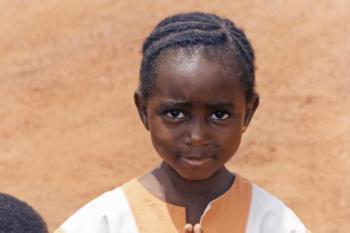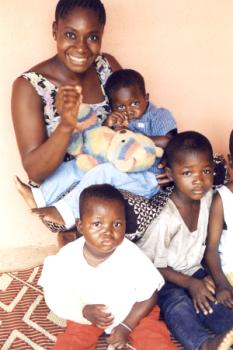Internal migration and child labour endanger children’s healthy development

The SOS Children’s Village is located in Dafra, a suburb of Bobo Dioulasso in western Burkina Faso. We began ourwork here due to the lack of care facilities for children who had lost parental care. There is a multitude of difficult social and economic factors that affect families in the region, including high rates of poverty and HIV/AIDS, a lack of education and health care, as well as inadequate sanitation and the consequent spreading of infectious diseases. When families are vulnerable, children are at risk of losing the care of their parents, for example due to illness, or in the worst cases they may be abandoned because the parents are no longer able to provide for them.
Bobo-Dioulasso is Burkina Faso’s second largest city and an important economic centre due to its textile industry and central location on trade routes. This makes it a promising destination for internal migrants from rural areas who come to the city in search of opportunity. Daily life can be extremely difficult in the small rural villages, especially due to the lack of water. Increasingly, young boys migrate on their own in search of work, often encouraged to do so by their parents. Girls as young as ten or eleven are often sent to work as domestic servants for better-off families in the city. However, usually they make less than five US dollars a month and, as they have no support or protection in a strange city, they are also extremely vulnerable to violence and abuse.
In addition, these girls usually do not receive an education. In some areas of Burkina Faso, up to 72 per cent of girls between the ages of seven and 14 are not in school, and in some areas over 95 per cent cannot read or write. Recent years have seen an influx of refugees, mainly from neighbouring Côte d'Ivoire and Mali, and Burkina Faso is finding it increasingly difficult to cope. Refugee children often do not have the opportunity to go to school either.
Educating girls to avoid relationships of dependancy in later life
Urban life bears others risks for children and young people, such as the prevalence of drugs and commercial sexual exploitation. Young girls who migrate on their own are particularly vulnerable to becoming involved in commercial sex work or being sexually exploited by their employers. Often, these girls also lack knowledge about HIV/AIDS.
Certain gender roles continue to be deeply entrenched in Burkinabe culture. Many women who do not have a source of income rely on the gifts and money their sexual partners give them. Again, this puts them at an increased risk of contracting HIV/AIDS or other sexually transmitted infections.
What we do in Dafra

SOS Children’s Villages began its work in Bobo-Dioulasso in 2004 to help vulnerable children.
Strengthen families: The SOS Social Centre here offers a family strengthening programme to the local community. One of its main goals is to ensure that children have access to essential material, educational, health and social services. The programme also supports families from the local community in building their capacity to care for their children, for example by providing guidance on income-generating activities and parenting skills. The SOS Social Centre also provides health services, counselling and psychological support, as well as care and support for families affected by HIV/AIDS. Around 255 people benefit from the programme.
Care in families: For children from the region who can no longer live with their parents, SOS families can provide a loving home for up to 120 children. In each family, the children live with their brothers and sisters, affectionately cared for by their SOS parentr.
Education: The children attend the SOS Kindergarten together with children from the neighbourhood. This ensures that children from SOS families make friends and are integrated into the local community from a young age. They then go on to complete their primary and secondary education at the SOS Hermann Gmeiner School, which is attended by up to 900 pupils, making it an important educational institution in the region.